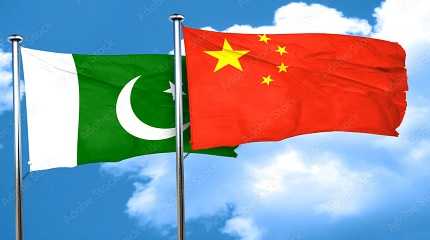
BEIJING, Nov 7 (APP): “In the future, hair loss prevention and hair growth is the top priority, scalp care is also one of the future trends. If Pakistani hair loss prevention products can enter into the Chinese market, they will have great potential.” Liu Yingqi, general manager of JD Worldwide, said.
In an interview with China Economic Net at a sub-forum during the fifth China International Import Expo (CIIE), he cited data from a 2019 survey by the National Health Commission of China, with an average of one in six people losing their hair. Among them is a large number of the post-90s generation.
According to Liu, Chinese consumers are increasingly concerned about hair loss, and “keeping hair healthy like face” is becoming a new trend in China. As Chinese consumers gradually upgrade their concept of hair washing and care, treating scalp and hair separately will be the trend. In the future, hair loss prevention products are as promising as niche beauty brands.
According to the General Administration of Customs of China, import and export volume of cross-border e-commerce in China has increased nearly tenfold in the past five years.
Han Rui, vice president of JD Group, said that in the past three years, JD’s total purchase of imported goods reached RMB 500 billion, exceeding the RMB 400 billion target set at the second CIIE, which is supported by the strong purchasing power of Chinese consumers for imported goods.
“Taking JD’s pre-sale on Singles Day shopping carnival at 8 pm October 31, sales of JD Worldwide and 800 overseas brands increased by more than 100% year-on-year. It is enough to prove that Chinese consumers love imported goods, and cross-border goods have a very broad market prospect and unlimited potential in China,” Han said.
Acknowledging the massive size of China’s e-commerce market and its potential to further bolster bilateral trade, what will Pakistan do to open the door of the Chinese market through cross-border e-commerce? In early November, during Prime Minister Shehbaz Sharif’s visit to China, China and Pakistan signed the Memorandum of Understanding on E-commerce Cooperation between the Ministry of Commerce of the People’s Republic of China and the Ministry of Commerce of the Islamic Republic of Pakistan, which will promote trade in quality products and strengthen cooperation in logistics, electronic payment and other areas.
Pakistan has set up a national pavilion on the JD platform. At the beginning, only some cookies were sold. Now the website has covered more than 70 categories, such as Basmati rice, cookies, black tea and condiments. Among them, the best seller was Basmati rice, followed by cookies and tea.
Among the more than 500 reviews with a positive rating of 96%, consumers generally commented that Basmati rice has a strong rice flavor and is suitable for making fried rice. “Pakistani mango jam and plum jam, which are relatively rare in the Chinese market, will hit the shelves soon,” according to Liu, the pavilion also participated in the Double 11 shopping spree. “At present, the variety of Pakistani products is limited. Welcome to introduce more special products and resources to us.” Han appealed.




